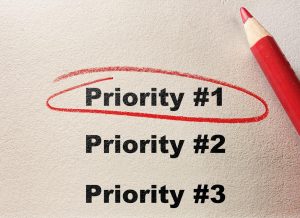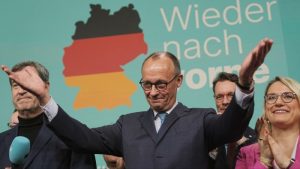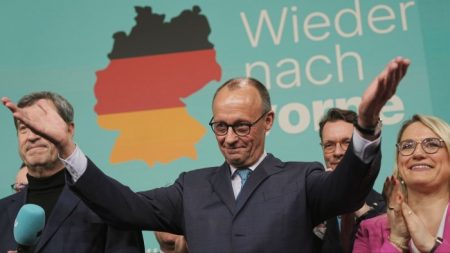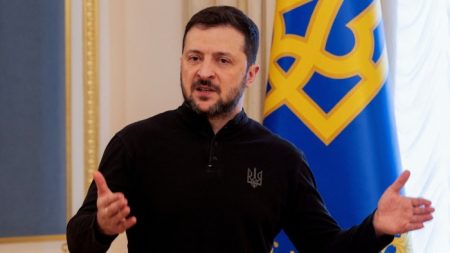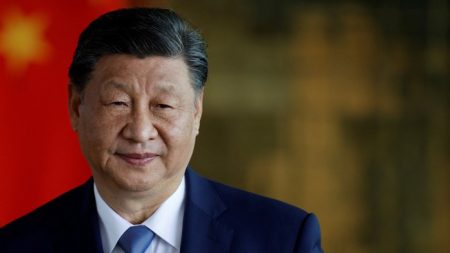Austria’s far-right Freedom party scored a historic victory in the country’s parliamentary election on Sunday, with the result consolidating pro-Russian, anti-establishment forces in central Europe.
The FPÖ was due to win just under 29 per cent of the ballots cast, according to a near final official estimate of the vote late on Sunday, bolstering the claim of its firebrand leader Herbert Kickl to become Austria’s next chancellor.
It is the first time the FPÖ, which has embraced increasingly hardline and extremist policies on immigration and the war in Ukraine in recent years under Kickl, has come first in a national election.
The breakthrough comes as the latest in a series of strong performances by Europe’s far right — most notably in France and the Netherlands — and underscores the extent to which the continent’s mainstream parties are struggling to respond to a series of economic and social challenges.
Kickl is sympathetic to Russia, and a strong critic of the EU’s support for Ukraine, blaming the bloc’s stance for the cost of living crisis in Europe.
“Jörg Haider would be proud of us,” Kickl told an ecstatic audience of supporters in Vienna, referring to the FPÖ’s former flamboyant leader, whose best ever result in 1999 was eclipsed on Sunday. “The voters have declared their will,” he added.
For nearly two years, the FPÖ has led in national opinion polls, but the party’s victory was greater than expected.
The moderate conservative ÖVP, which governs in coalition with the Greens, secured about 26 per cent of the vote.
It meant the ÖVP came second in the election and lost much ground, but the party held on to its core vote, while the Greens suffered a heavy defeat. The Social Democrats were on track to obtain just 21 per cent of the vote, their worst ever result.
A fraught period of negotiations to form a new coalition government will now follow.
The FPÖ’s strong performance may paradoxically reduce its chances of gaining power, with the ÖVP potentially unwilling to consider a role as the junior partner in a coalition.
Instead the ÖVP may look to try to form a grand coalition with the Social Democrats and liberal Neos, but this could prove difficult due to yawning policy differences.
While the ÖVP and FPÖ have more policy positions in common, Kickl is seen by many in the moderate conservative party that has dominated Austrian politics for 70 years as an impossible figure to work with.
“We have clearly stated what we stand for: the politics of the middle and stability,” said chancellor Karl Nehammer, leader of the ÖVP, on Sunday.
“What I said before the election, I also say after the election,” he added, in a reference to previous statements about not forming any coalition which involved Kickl in a ministerial role.
Kickl was interior minister in a coalition government led by the ÖVP under chancellor Sebastian Kurz between 2017 and 2019.
That alliance collapsed after the FPÖ’s leadership was filmed in a sting operation in a luxury villa in Ibiza soliciting what they thought was Russian political support.
Although Kickl was not involved in the scandal, he was forced out of the government and a deep mistrust between him and the ÖVP leadership has persisted.
Many in the ÖVP are uncomfortable with the course Kickl has taken the FPÖ on since he became leader in 2021.
Kickl has shown himself ready to break taboos over the country’s Nazi past as part of his campaign strategy.
He has helped to bring figures considered even by past FPÖ leaders as too extreme — such as those from the Austrian identitarian movement, which holds radical views on race and culture — back into the party fold.
Over a summer of campaigning, Kickl has repeatedly styled himself as the “Volkskanzler”, or the people’s chancellor — a phrase with a long political history but most commonly associated with Adolf Hitler.
Kickl and his supporters would reject any notion that he is a Nazi.
But people familiar with his campaign style said that borrowing from the playbook of Haider, for whom Kickl was a speechwriter, he is willing to goad opponents even on sensitive topics, as a way to portray them as censorious and oversensitive.
As well as complicating potential relations with the ÖVP, such tactics may make Kickl an unpalatable figure for Austria’s president, Alexander Van der Bellen, who will appoint the next government.
Although his office serves a largely ceremonial role in the day-to-day running of Austrian governmental affairs, Van der Bellen appoints each member of the cabinet individually.
It is only by tradition that the largest party nominates a chancellor and Van der Bellen has made no secret of his dislike for Kickl, suggesting in the past he could refuse to appoint him as a minister.
“The formation of a grand coalition [between the ÖVP and the Social Democrats] will be pushed hard by Van der Bellen,” said Marcus How, head of research at VE Insight, a Vienna-based political risk consultancy.
He added this would be a “gamble”, because it would give the FPÖ even more arguments to “rail against” the political establishment uniting against the party.
Read the full article here


